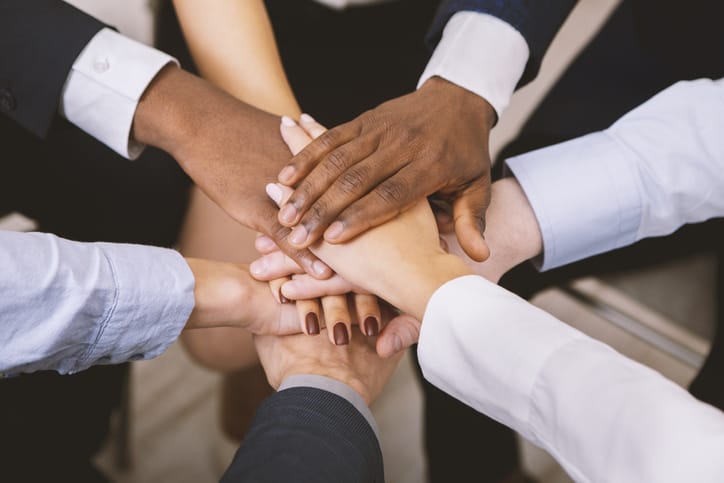The groundswell movement to end systemic racism has unleashed the kind of candid, often uncomfortable, conversations that lead to real change.
As a white CEO of a nonprofit enabling formerly homeless individuals and families to attain stable housing, employment, and wellness, I have spent the better part of my adult career seeking ways to bridge economic and social disparities that can sidetrack a person’s potential. Over the years I have seen my clients and colleagues face inequities, and have been acutely aware of the privilege I have in living unburdened by those experiences.
But in the wake of the horrifying deaths of George Floyd and so many other innocent people of color, I realized that as a leader I needed to do much more.
This summer we were all reeling from grief and anger over a system that had stolen the lives of so many, when a colleague on our leadership team pointed out to me what should have been obvious. Many of our employees — 92 percent of whom are people of color — were putting on brave faces and getting their jobs done while feeling paralyzed with trauma.
We could not move forward as an organization until we confronted the fear and despair our colleagues and clients were feeling. So we embarked on a healing, sometimes messy, and continuing series of calls and Zoom meetings to tackle the complexities of our emotions and forge a grassroots action plan.
We polled our nearly 200 employees for specific ideas for policy and cultural changes, then mobilized organization-wide work groups to implement them. Some of what we surfaced:
- Demand more diversity: Even with a predominantly diverse organization and C-suite, we have to hold ourselves accountable for existing areas of exclusion. Among our clients, we are analyzing our metrics for inequities, for example in how quickly we are able to place black and brown vs. white veterans in apartments in the city. We are also looking to hire more diverse vendors and suppliers from the abundance of talented professionals here in New York. Crucially, we are committed to bringing more people of color to our Board of Directors that currently spans gender, age and ethnicity.
- Rout out embedded racism: That leaves a key population to address: our employees. To ensure that everyone feels safe and included within our organization, we are planning to engage a third party to examine our policies, practices and everyday communications. Our staff can be educated on how to first be aware and second intervene appropriately when micro-aggressions occur.
- Create a calming culture: Building times and places for respite and community-building has been critical to the mental health and well-being of our employees, who are simultaneously bearing the stress of COVID-19. We created an anti-racism collaborative, inviting them to read books, watched films virtually, and explore our diverse histories and orientations. We also believe in the power of symbolism. We established Juneteenth as a paid holiday. At the same time, we can bring intention to honoring and celebrating the diversity of our staff and clients throughout the year.
- Commit dollars to earnings opportunities: Prior to the protests, we had increased our case managers’ salaries by 10 percent, and during the COVID shutdown we paid a premium to the maintenance and front desk staff keeping our supportive housing residences clean and safe. We are also looking to create internship opportunities for the high school or college-aged children of our staff and clients, both internally and with our partner companies. We have committed to support more Black-owned businesses in our community as well.
- Advocate for a voice in social justice: As a nonprofit, we cannot support a political candidate, but we travel regularly to Albany and City Hall with our residents who speak to the need for more affordable housing for families, veterans, and LGBTQ young people. Going forward we will expand this to include issues of racial equity such as criminal justice, prison reform, and voter suppression. We are also conducting an educational campaign around the importance of completing the census and voting.
Without the input of our staff we could not have created this blueprint for change — and alongside them we will seize its potential.
Tori Lyon W89 is CEO of Jericho Project, a New York nonprofit ending homelessness at its roots through supportive housing and comprehensive services.


























